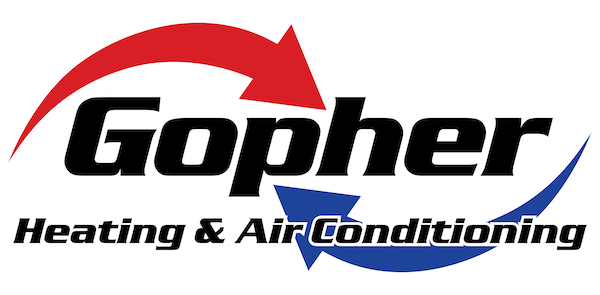
Buying your first home is exciting. You’re likely trying to keep track of a dozen things or more to ensure you’re making the right choice. We believe that gaining insight into your potential new HVAC system is vital. The property’s HVAC system represents a significant investment and potential source of long-term costs, illustrating why a detailed inspection should be a top priority for first-time homebuyers.
In this guide, we’ll outline seven tips for learning everything you can about a home’s heating and cooling setup. And if you want a deeper opinion from the pros, feel free to call Gopher Heating and Air Conditioning. Our staff can help you compare your options with industry insights you won’t find elsewhere.
1. What HVAC System Are You Working With?
Start by determining what specific HVAC system the home includes. Furnaces generally last longer than air conditioners, and relatively new types of HVAC equipment like heat pumps can offer average life spans that are impressively long. Getting the details on the make and specific model ensures you have a clear idea of how much it might cost in upkeep over time.
2. How Old Is the Current HVAC System?
Another good idea is to find out how old the HVAC system is when you're considering a potential new home. For the most part, HVAC systems tend to run for about 10-12 years. Knowing when it was installed helps you prepare for any needed servicing or considerations if it might break down. Older systems are more prone to problems, so fiscal planning for a replacement unit might be needed faster than expected.
3. Is the Warranty Still in Effect?
Check if the HVAC system is still under warranty. If it is, you’ll appreciate how it can help with maintenance costs. HVAC warranties typically include parts and labor, but the details in each policy will vary. Review any terms that aren’t familiar to make sure you fully understand your coverage and any possible out-of-pocket costs.
4. When Was the Last Time It Received Maintenance?
Don't forget to check the maintenance history of the HVAC system, if this kind of history is available. This service history can reveal if the system constantly broke down or how much upkeep was provided. Inquire about key tasks such as changing the air filter, which can indicate it received regularly scheduled tune-ups.
5. Do You Know Its Energy Efficiency Ratings?
Purchasing a home with a heating and cooling system with strong energy efficiency can lead to more manageable utility bills and a smaller environmental impact. Locate the seasonal energy efficiency ratio (SEER) ratings for air conditioning along with the annual fuel utilization efficiency (AFUE) for furnaces. The higher the SEER rating, the more efficient the cooling over the whole season, while strong AFUE ratings indicate that the fuel is efficiently converted into useable heat.
6. Can You Spot Trouble After Your Own Inspection?
Even if you don’t have the know-how of an HVAC technician, it's still a good idea to examine the HVAC system yourself. Look for signs of problems that might have been overlooked. This can mean bizarre noises, spots with uneven heating or cooling and attempts to hide any serious damage.
7. Have You Sought Out Expert Advice?
If you're not quite sure about the overall state of the HVAC system, it's beneficial to get a professional opinion from trained HVAC technicians. They can spot things you may not know about, including leaks in the refrigerant, damage to the wiring or flawed ductwork.
A Call with Gopher Heating and Air Conditioning Simplifies Your Home-Buying Journey
Finding your first home ought to be exciting, and Gopher Heating and Air Conditioning can ensure it stays that way. Reach out with us at 952-373-0377. We can discuss how our HVAC services ease your mind, giving you what you need to step into your new home with confidence.



